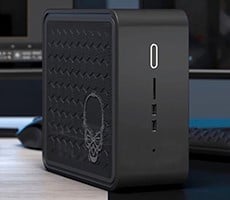18 Months Later: Origin's Genesis Desktop Revisited
We're happy to report it did. Origin got back to us within 24 hours; we dealt with the same tech throughout our conversation. As it happened, Origin didn't have any of the same Corsair Dominator DDR3-1600 our system used. Instead of telling us the memory would have to be specially ordered, the company promised to ship the RAM through a trusted third-party provider. Three days later a package arrived direct from Amazon. Cross-shipping was offered by default and the company never asked us to wait longer on the grounds that the system was still running on 2GB of RAM.
Pleased, we pushed a bit farther. We explored the PCI / Soundblaster issue—our tech had no record of the problem, but indicated it most likely wouldn't be an issue on a different sound card, which we agreed with. We also asked if there were new video card options we should consider. Our tech answered that there weren't at the moment, given the dual 5970s we presently had, but that faster cards would launch later in the spring that might offer features worth considering. Explicitly offered an opportunity to up-sell us, Origin didn't. That, and the company's warranty service, impressed us.
GPU performance is also excellent, given how much time has passed. While they aren't the fastest solutions money can buy currently, the twin 5970s are still near the top of the pack. Even when it comes to tessellation--a perceived weak spot in the 5000 series—the quad-GPU configuration inside the Genesis turns in very capable performance. Enthusiasts willing to overclock could well find additional performance to unlock within the configuration (we've seen the cards stable at up to 875MHz).
The one system component that's aged a rather poorly is the SSD. While its performance is still well above the level of any hard drive, the mere 80GB requires strict monitoring. Large files, like email or download directories, have to be placed elsewhere or maintained carefully; SSDs require significantly more space to be free at any given time in order to keep optimal performance.
Overall, we remain impressed with the Origin Genesis. For those who could afford it, and who want the security of an OEM's backing, the Genesis remains an attractive option.
While our experience with the Origin Genesis was a positive one, we're sure some of you reading this may have had far different experiences with other OEMs or perhaps even Origin. If so, we'd love to hear from you in the comments section below...






